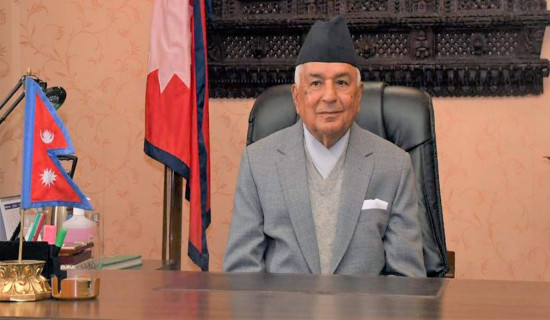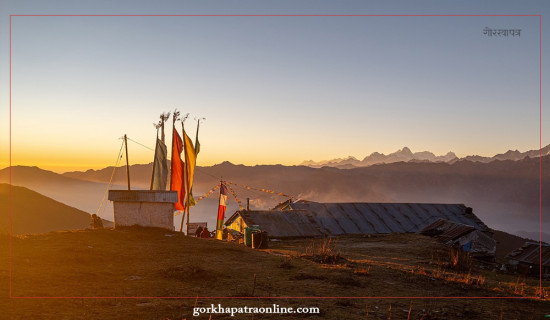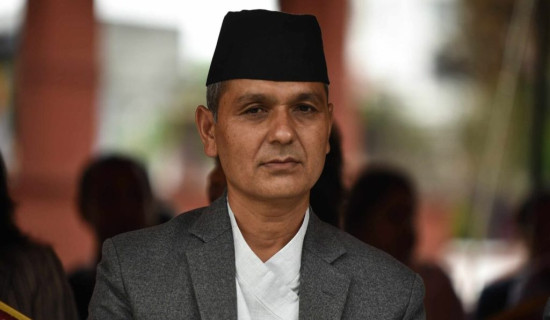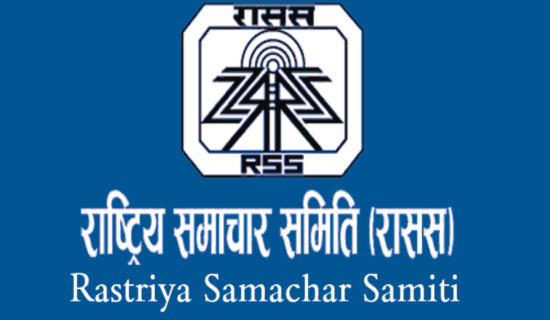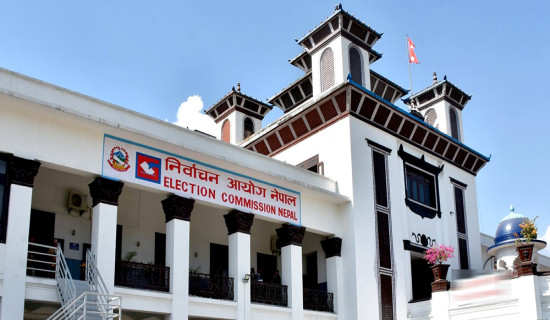- Thursday, 19 February 2026
Children Denied Liberty
Deepa Ghimire,
The 2019 UN Global Study on Children Deprived of Liberty, commissioned by the UN Secretary-General, found that children around the world continue to be deprived of their liberty in detention facilities.
They are denied family care and access to justice, often unable to challenge the legality of their detention. These children are exposed to further human rights violations, enduring cruel, inhumane, and/or degrading conditions. Furthermore, they are often denied the right to education and health care and do not benefit from tailored and long-term rehabilitation and reintegration support.
These issues point to the need for greater investments in injustice for children, ensuring the full application of international standards for all children who encounter justice systems as victims, witnesses or alleged offenders, including through contact with the security and social welfare sectors.
On April 10, 2022, almost three years after the presentation of the UN Global Study on Children Deprived of Liberty at the United Nations General Assembly, it was found that the pandemic had disrupted the child protection and the justice system and hindered access to justice for children in detention. It also exacerbated health risks for the children deprived of liberty. Kathmandu School of Law (KSL) in collaboration with the National Child Rights Council (NCRC), National Child Protection Alliance (NCPA), UNICEF, and Global Campus of Human Rights with the support from Swantantrata Abhiyan Nepal, organized a consortium entitled " Nepal Country Event: Consultation on UN Study Report Children Deprived of Liberty."
The main purpose of the event was to discuss on Alternatives to Deprivation of Liberty, Integral Protection, and Access to Justice for All Children. The participants had the opportunity to hear about a varied roster of panelists, which involved practitioners, experts, state representatives, UN officials, NGOs and youth and child representatives.
The event provided an opportunity to pore over findings from Manfred Nowak, an independent expert who conducted a global study. Geeta Pathak Sangraula, Professor at KSL, Milan Dharel, Executive Director at Child Rights Council, Ram Prasad Gautam, Child Protection Officer at UNICEF also interacted at the program where the thoughts of Child Representatives and the experiences of child activists and social workers working in this field were also presented.
The convention on the Rights of the Child (CRC) has clearly mentioned the right to life, the right to personal integrity and dignity, and the right to personal liberty and prohibited unlawful or arbitrary deprivation or personal liberty of children.
But still, nearly 1.5 million children are deprived of liberty according to the 2019 UN Global Study on Children Deprived of Liberty.
Regarding the Administration of Justice, between 160,000 and 250,000 children were detained on any given day in 2018 and approximately 410,000 children were held in remand centers (pre-trial detention) and prisons throughout the year. Children in migration-related detention were 330,000 throughout the year. Regarding Children detained in institutions, 5.4 million children are at risk of deprivation of liberty of whom approximately 12.4% are de jure deprived of their liberty.
In the context of Nepal, the prevailing data of children deprived of liberty residing in Child Correction Home was found to be 1,007 as of December 1, 2021.
The session highlighted the difficulty in age determination, failure to adjudicate the cases of children within a defined timeframe, unavailability of separate space for child detention, and delay in the enactment of Children's Regulations to be the major hindrances to the administration of justice to children.
An overview of findings was done on the institutional framework that should match the best interests of the child, provision of alternative care with the right to safety, care, participation, and development of children.
Deinstitutionalization and system-wide reforms, inquiry regarding children abused in care leading to reform, and family and community-based initiatives should be practiced by all the institutions to ensure the liberty of children. The discussion shed light on the immigration detention experiences.
Detention centers are more restrictive, overcrowded, and unhygienic and placed the children with adults resulting in poor health and distressing incidents. It was suggested to prioritize the children's both physical and mental health development protecting them from violence and abuse in detention centers with the provision of special care, protection, and assistance.
The event also discussed the recommendations and commitment passed by the National Consultation on Protection of Children's Liberty, asking the government for the utmost enforcement of diversion in the execution process of justice and strengthening the child reform homes to enable child-friendly local government.
It further asked the authorities to develop and circulate local child rights structure and mechanism and expansion of children social security program along with strengthening human resource development for child rights protection.
A timely monitoring and risk minimization from possible hazards and activation of NCRC to protect children's liberty during the crisis was also discussed.
Understanding the current status of justice for children and call to action is the utmost priority to prevent offenses against children and ensure that the rights of children are protected and respected along with their safety and well-being.
All the policy actors: justice and child protection systems, social workers working in juvenile justice and child protection, civil society, and lawmakers are the responsible stakeholders to work for the Children's liberty with evidence-based decision-making practices.
(Ghimire is a public health student at CIST College)











